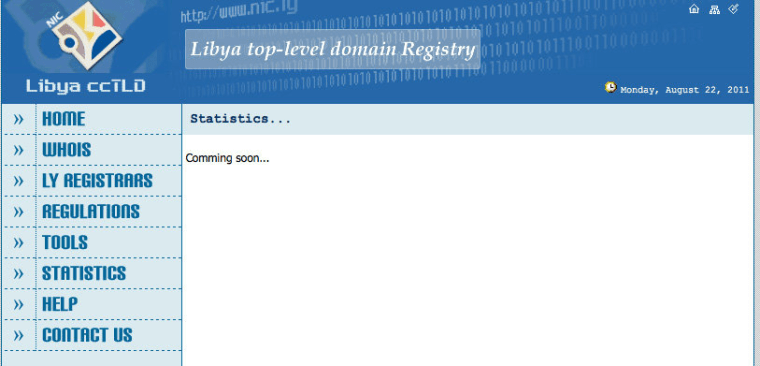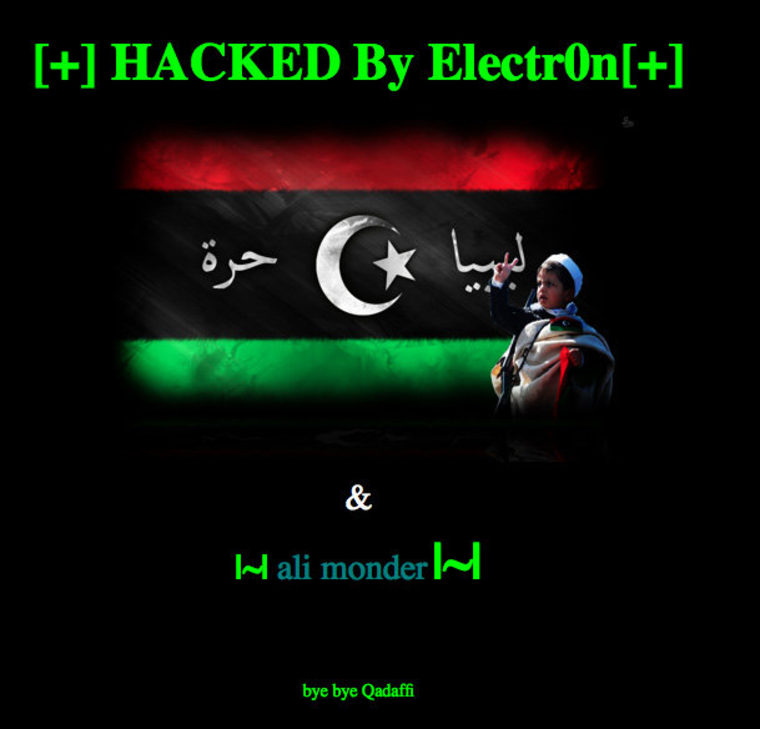Many of us recognize websites that end in ".ly" as those belonging to Bit.ly, a URL shortener service. But ".ly" is also the Internet country code for Libya, and hackers have defaced the the website of the country's domain name registry, Nic.ly.
"Hacked by Electr0n," is the message that reportedly greets those who go to the site, along with a message of "bye bye Qadaffi," and below that, "Feb 17 Libya," the date protestors designated a "day of rage" against Gaddafi and his regime.
Attempts to access the Nic.ly site on Monday were futile; it's unclear whether the site was taken down by the Libyan government in the wake of the defacement. A cached version of the hacked page can be viewed here.

Sophos Security noted the hack on its blog, describing Nic.ly as "the main registry which administers .ly domain names ... perhaps the most famous site to use the .ly country code as as their top level domain is the bit.ly url shortening service. Companies which have .ly country codes in their domain name do not appear to been impacted by the hack, which seems to just be a defacement of the nic.ly main page."
Nic.ly itself has been fine in the past with Bit.ly, but not with another website that used the ".ly" extension — vb.ly, by sex and technology writer Violet Blue.
Last fall, the Libyan government shut down the site. In a letter to Blue, a representative from Libya's Telecom and Technology department told her that "Pornography and adult material aren’t allowed under Libyan Law, therefore we removed the domain."
"Had your domain merely been a URL shortener for general uses similar to bit.ly (as you claim) there would have been no problem with it."
It was a far reach for a country where only about 6 percent of its population has Internet access, according to research group OpenNet Initiative.
Related stories:
- Libya's Internet flickers back to life
- Timeline: Libya's uprising against Muammar Gaddafi
- Internet traffic in Libya goes dark amid upheaval
Check out Technolog, Gadgetbox, Digital Life and In-Game on Facebook, and on Twitter, follow Suzanne Choney.
